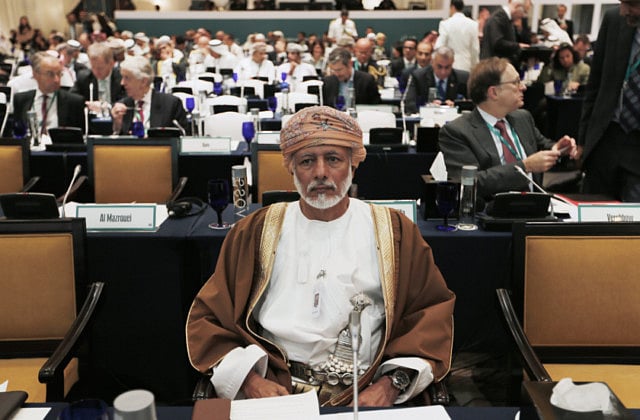Dubai: Oman’s statement that it will “simply withdraw” from a future union of Gulf states if it ever takes place raised eyebrows in the Gulf, not only because of its bluntness, but because it demonstrates the extent to which Oman feels the arrangement is being imposed on it.
However, if the arrangement is indeed being imposed, then it is likely that Oman is not alone in opposing it.
Oman felt strongly enough against the arrangement that it broke out of its quietist diplomacy to set the record straight. Foreign minister Yousuf Bin Alawi’s statements on his country’s opposition to the Gulf union were not made on a panel during the Manama Dialogue on Saturday, but in the form of an intervention as a member of the audience to comments made by Nizar Bin Obaid Madani, Saudi Arabia’s state minister for foreign affairs, advocating the union as a necessity.
Oman pre-emptively used the Manama Dialogue that took place just three days before the annual GCC summit in Kuwait to make its position clear, steer the summit’s agenda away from an imposed union arrangement, and start a debate that may have paved the way for other Gulf states to voice similar reservations about such an arrangement.
In a departure from media practice that steers clear from discussing controversial foreign policy issues, Oman’s government and private media stations gave prominent coverage to Bin Alawi’s statements.
On Saturday night, just hours after Bin Alawi’s revelation, Oman’s state news channel invited Saif Bin Hashil Al Maskari, the GCC’s Omani former deputy Secretary General for Political Affairs, to analyse the sultanate’s position on the matter.
He said that while Oman had been keen to bolster intra-GCC ties, all the initiatives it proposed towards that goal and in safeguarding Gulf states’ security in the body’s early days had been ignored. The call for the Gulf union, he said, was hasty and reactive, not proactive.
“I don’t think the call for a Gulf union serves the [interests] of the GCC, its member states or the Gulf’s people, rather it is driven by foreign factors that some thought may help the Gulf states,” he said.
“Oman’s policy is based on specific fundamentals that do not change, especially those pertaining to geography and history. Situations may change but history and geography do not… And this policy will not change because the interests of Oman come first.”
In opposing the union so publicly, Oman may be saying what other Gulf states are thinking. While Gulf states have expressed support for the idea of a union, deep divisions remain. Qatar has strong disagreements with Saudi Arabia over its regional policy that were only recently being ironed out with Kuwaiti mediation.
The UAE’s position on Saudi Arabia’s dominance of the group was made clear when it decided to withdraw from the common currency after it was decided that the GCC’s central bank would be headquartered in Saudi Arabia.
In Kuwait, which operates in a relatively democratic fashion, any such arrangement is likely to require parliamentary approval, if not a referendum. As former speaker of parliament and opposition strongman Ahmad Al Saadoun outlined in an interview with Saudi-owned Al Arabiya last year: “We can’t just reach any kind of union… There can be no union between countries where the nature of the regimes is so different. You can’t talk about a union between Kuwait… and those states whose prisons have thousands of prisoners of conscience… We are fooling ourselves if we think a union can be achieved without the governments forgoing some powers to their people.”
Sign up for the Daily Briefing
Get the latest news and updates straight to your inbox
Network Links
GN StoreDownload our app
© Al Nisr Publishing LLC 2026. All rights reserved.
